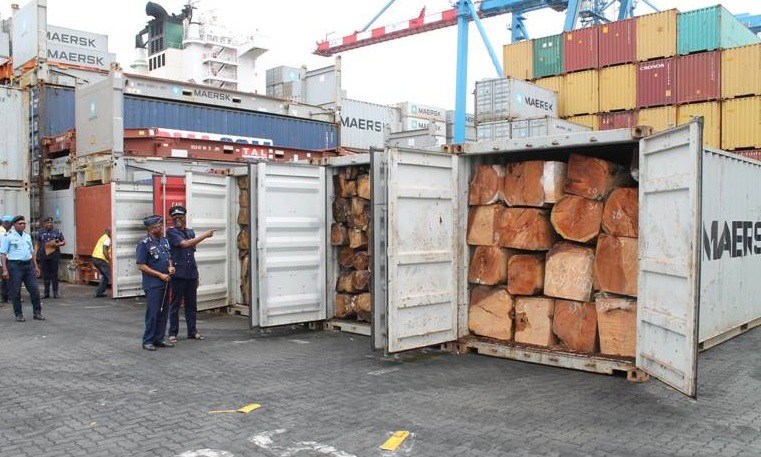By:Peter Rosenberg (aka Amet Ngallan)/Fajara
During Sept and Oct 2019 we read news about the seizure of 38 containers of timber at the Banjul Port. And later some 40 containers of ‘processed’ timber (species not reported) had been approved for export by the Ministry of Environment, Climate Change and Natural Resources. It is not clear if these two incidents are one and the same. Minister Lamin Dibba was reported to have claimed the matter is being investigated by the police, SIS and the GAF. He added that this investigation will take six weeks.
Sometime later, in March 2020, BBC’s Africa Eye reported plenty of West African Rosewood is being trafficked thru The Gambia. Minister Dibba was mentioned as a participant. He, of course, denied the accusation.
Then came the astonishing June 2020 report ‘Cashing in on Chaos’ by the Environmental Investigation Agency (EIA). It says Gambia exported about 1.6 mil rosewood (keno) trees between June 2012 and April 2020. This is the most through investigative report on this sorry situation so far. It gives troubling testimony about corruption that is ongoing today – it names the players, the loss of revenues, un-authorized permits and non-existant or bogus CITE certificates and all. The Police, the SIS and even President Barrow should spend some time to read it, then follow through. The culprits named in the report should brace themselves.
The cycle of confusing actions affecting the timber trade is summarized by this timeline:
- September 2016 former President Jammeh bans all timber imports from Casamance.
- February 2017 Environment Ministry bans the import, transport and export of timber, with a transition period beginning May 2017 to allow export to China semi-processed stockpiled logs until July 2017.
- March 2018 The Forest Act bans timber trafficking between Casamance, the Gambia and China.
- Aug 2018 The Gambia and Senegal formally agree to fight the illegal timber trade in Casamance.
- December 2018 The timber export ban since July 2017 is lifted until May 2019 to allow export of timber. All imported timber stored at landing sites across The Gambia are to be transported to a central log yard in Farato, processed, loaded and exported.
Now what we have here is traders in illegally imported ‘conflict’ timber cry that they face losing money – money they paid to import timber but are unable to fulfill their contracts with Chinese buyers. It’s as if the government wondered gee, we have all this timber, what are we going to do with it? Their solution suggests the limited extent of their creative thinking.
Since Gambia has too many unemployed youth who need jobs, this temporary ban-lifting scheme enables some of them to process this timber (transport, trim and containerize) and earn some money for a while, thereby avoiding having to resort to the ‘back way’. It all sounds good. Never mind that this has created a scarcity of keno wood for local carpenters. It is the same scenario as Bonga fish and the fishmeal business, and illegal fishing too. Adding to the inconsistent and confused policy is GEIPA promoting presumably illegal timber exports, which they say have contributed up to 1/2 of Gambia’s total exports. Go figure.
The final nail in the coffin of the government’s credibility and capability is when the world’s 4th largest marine carrier, French CMA CGM, announced they have stopped handling any timber shipments from The Gambia. They urged other carriers to join them, but without success. Money is at stake, after all. The shippers’ action implies The Gambia cannot manage its own affairs.
It is fair to ask Minister Dibba what happened to the 38 impounded timber containers. And how is the now 1-year long investigation into the matter coming along?
The Cree, a Native American tribe, have a saying …
“Only when the last tree has been felled, the last river poisoned and the last fish caught, man will know that he cannot eat money.”
Over and out,
The views expressed in this article are the author’s own and do not necessarily reflect The Voice’s editorial stance.



